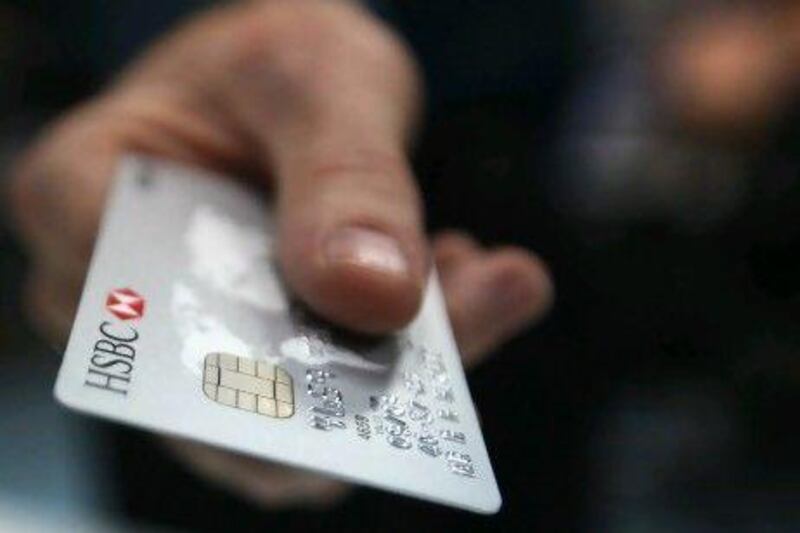The swipe-and-sign card transaction is to become a thing of the past in the UAE.
Shopaholics:
Industry Insights Get the scoop on what's happening in the retail world. Learn More
Yesterday the Central Bank ordered a "national migration" to cards with a chip and pin number.
It has unveiled a timetable to roll out EMV chip and pin, an international standard designed to prevent card fraud, over the next three years.
Instead of signing a receipt to authorise payments, customers will be asked to enter their pin number using a point-of-sale terminal or ATM.
The change has been mandated "in the interests of improving security of payment cards", the Central Bank said.
The move would help to give peace of mind to customers that their cards would not be used fraudulently, said a spokeswoman for Visa, a payment systems company.
"The extra layer of security provided by chip and pin plays a key role in creating this secure environment by replacing the need for a signature with a personal pin code, helping to prevent unauthorised use of card information," she said.
As part of the migration to chip and pin, all electronic points of sale are to switch to the system by March, with all ATMs, debit and prepaid cards to follow by the end of next year. All credit and charge cards must be upgraded to use the new system by the end of 2014.
Some banks, such as Emirates NBD and HSBC, already use the system for some card transactions.
But the logistical challenges for banks to upgrade systems and provide chip and pin-enabled cards for an estimated 2 million card users in the UAE are vast, said Arup Mukhopadhyay, the head of consumer banking at Abu Dhabi Commercial Bank.
"It's not a quick issue," he said. "It'll take time and will require some technical development."
The move would have major implications for big banks running older systems, said Mohammed Zaqout, the head of personal banking at Al Hilal Bank.
Such banks would have to spend "huge amounts" to replace their systems, he said. "If your cards are not compliant, you'll have to do a re-carding exercise."
But the move was necessary as a result of growing consumer spending on credit and debit cards, Mr Mukhopadhyay added.
"Spend on plastic in this country has grown dramatically over the last five or six years," he said.
People in the UAE made 19.9 million point of sale transactions last year, making payments totalling Dh7.5 billion (US$2.04bn), according to data from the Central Bank. That compares with Dh1.02 trillion paid using cheques and Dh77.9bn withdrawn from ATMs.
Jumbo Electronics is currently in the middle of upgrading its front-office system, tills and card payment machines to ensure customers can use cards that require a pin number.
Nadeem Khanzadah, the deputy general manager for retail at Jumbo Electronics, said the switch to chip and pin could become an issue at the tills if people forgot their numbers.
"There could be a marginal impact because not everybody might know their pin code at the time of purchase," he said.
About 60 per cent of Jumbo payment transactions are made on cards, he added.
Although some banks already make use of chip and pin for debit cards, complying with the deadline to upgrade credit cards could prove more difficult, said Samer Soliman, the vice president and head of processing at Network International, the UAE's biggest payment provider.
"People are not used to knowing pin numbers for credit cards," he said. "For debit cards, people know their pin, because they use it on ATMs from habit."
Banks had shied away from using chip and pin on credit cards to make it easier for customers to spend without the risk of forgetting their pin numbers, Mr Soliman added.
"If you spend more, they make more money. They took a conscious decision not to use chip and pin," he said.
"For the banks it's a hassle - it's not that easy and requires a lot of system development at their end.
"They have to customise their systems, and for some banks they'll have to replace them," he said.
* additional reporting by Rory Jones
rjones@thenational.ae





